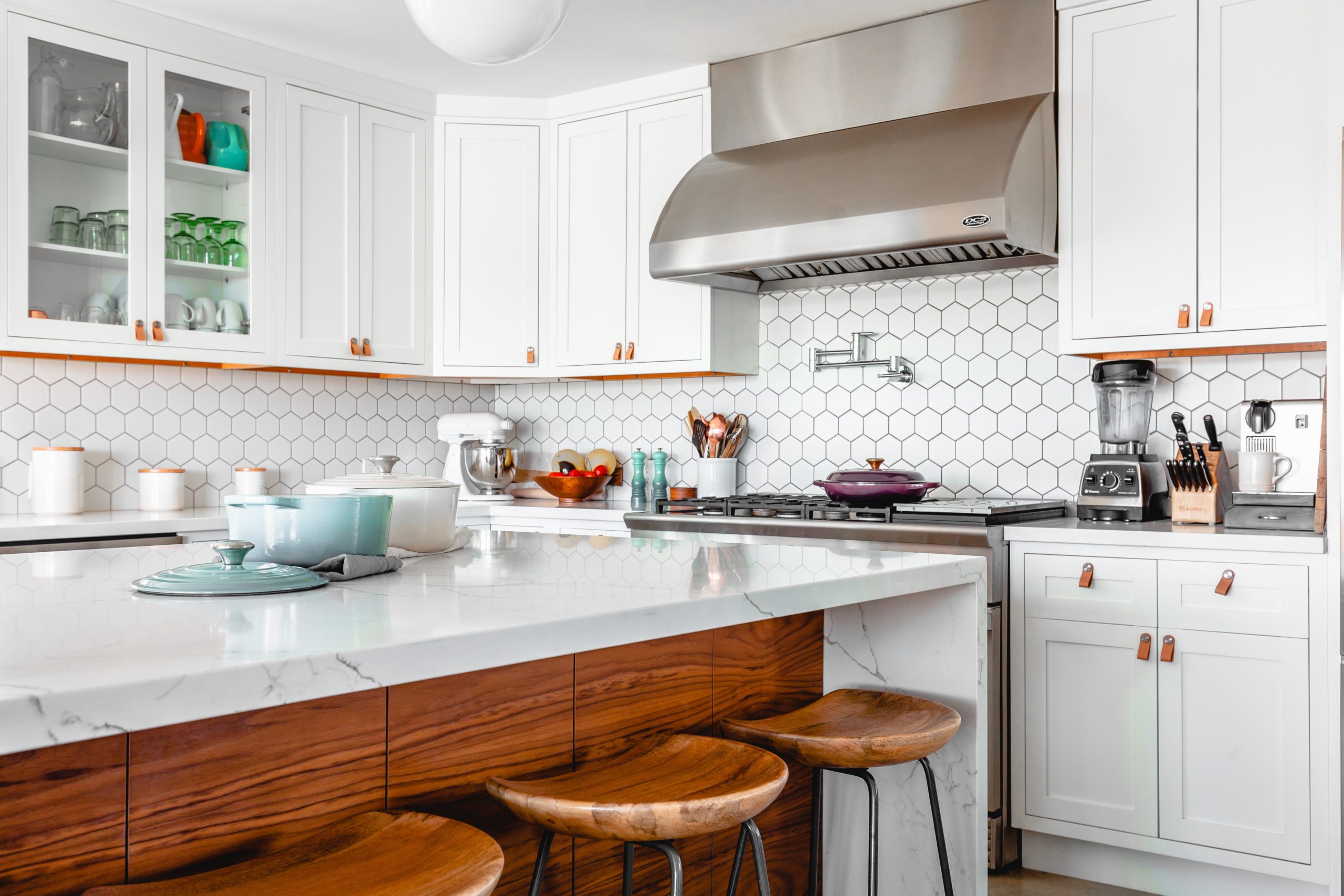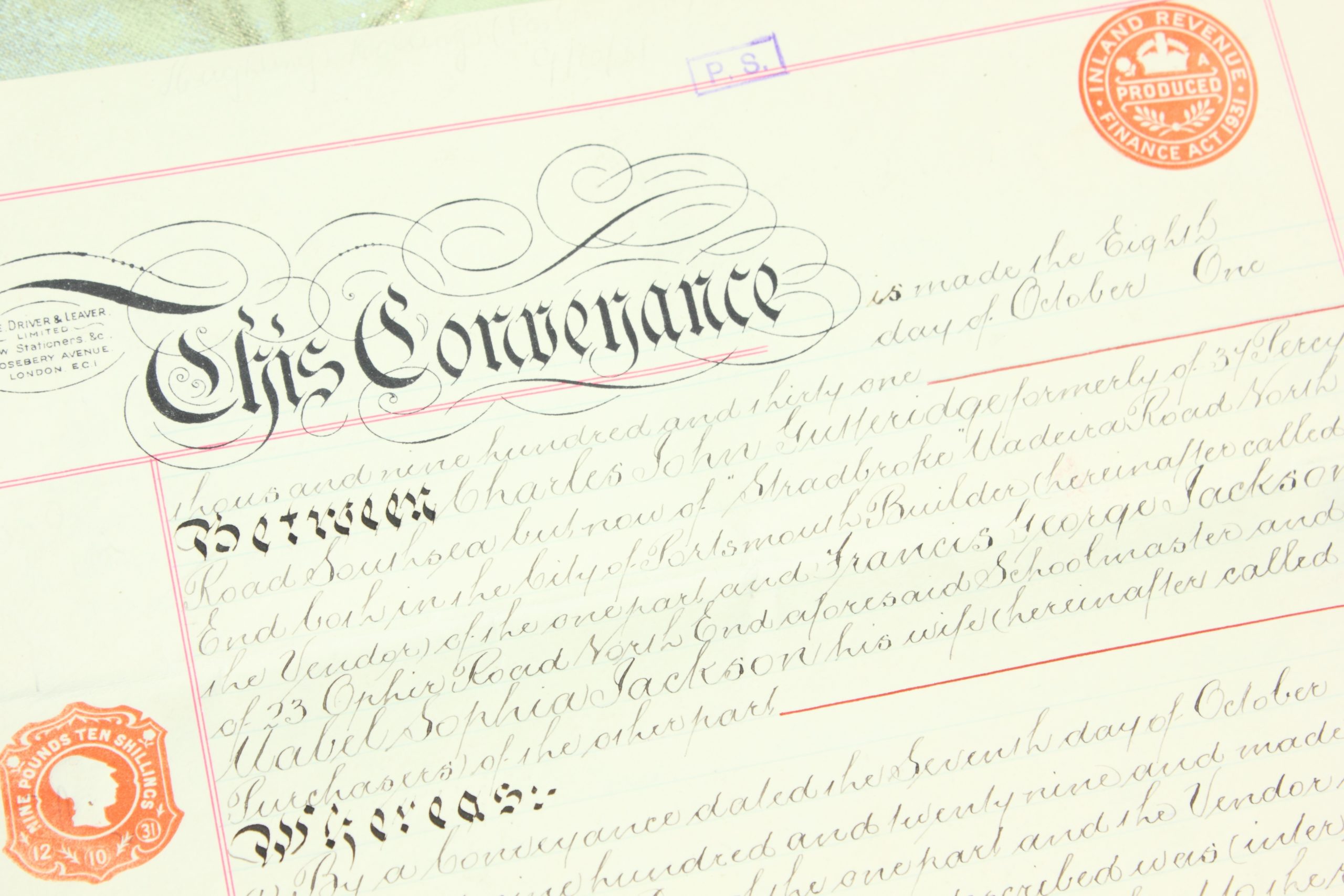Blog
- Details
- Hits: 461
The Do’s and Don’ts of Decorating Your Home

Decorating your home can be difficult. You’ll no doubt look at trends on interior design websites and want to copy them, but you also need a space that reflects your personality and is somewhere you can feel comfortable. Whether you’re planning to redecorate one of your rooms or want to renovate your entire property, here are some do’s and don’ts to get you started.
Do…
Think About How You Use the Space
While it’s nice to have a home that’s beautiful, it needs to be practical, too, or you’re likely to get frustrated and need to decorate again. Think about how you use rooms such as the kitchen and bathroom, whether you have children or pets, and whether you entertain a lot or prefer nights in with your family. This will help you make decisions and prioritise tasks.
Pick Things That Work with Your Home’s Décor
Nothing is stopping you from choosing a vintage theme for a new build, or putting a high gloss kitchen in a Victorian terrace, but will it really work with the space? You no doubt picked your home because you liked the architecture, so try to choose designs that will complement the house, as they are more likely to look right. Of course, mixing old and new can be just as effective. Accent pieces such as vintage chairs or antique candlesticks can add character to a room if it’s too modern, and soft sofas and cushions help avoid creating overly sharp rooms.
Create A Mood Board
Mood boards can help you gather all your ideas together, so you can come up with a design that’s both practical and beautiful. Online mood boards such as Pinterest are great, but it’s nice to be able to lay out photos and move things around while you come up with the right look.
Remember the Mantra ‘Less Is More’
A few subtle accessories and accent pieces will be much more tasteful than trying to fill a room with things in the same colour or print. Once things are starting to look cluttered, stop filling the room, or add some storage space to keep things neatly kept out of sight.
Make A Budget
It’s easy to get carried away when you’re trying to decorate your home, especially if you’ve got guests coming or are hosting for Christmas. Make a budget and stick to it, deciding which elements are most important and which things you can do without.
Don’t…
Get Obsessed with Matching Things
Look at some interior design stores, and you’ll notice that in their bedroom ranges, you can get a matching duvet, rug, curtains, and even a headboard. While it’s tempting to buy lots of things in the same range, being matchy-matchy is quite a dated concept, so look for items that complement each other instead.
Try to Do It All at Once
When you move into a new home, it’s tempting to try and decorate from top to bottom immediately. Unfortunately, this can lead to rushed decisions that you regret down the line and means you’ll be redecorating in a couple of years. Prioritise which rooms need to be done first and focus on them. You’ll also avoid overextending yourself financially.
Be Tempted to Follow Trends
While you don’t want your home to look dated, following trends for the sake of it and not because you like them is a sure-fire way to take the personality out of your home. While terracotta tones and jewel colours might be big right now, in a couple of years, they won’t be at the cutting edge of interior design, so unless you love them on a personal level, don’t bow to trends.
Buy Cheap Furniture
Cheap furniture might look good when you first assemble it and may even stand up to a few months of use, but it tends to break easily and look awful once there’s wear and tear. Remember the saying, if you buy cheap, you buy twice, so consider splashing out for key items such as your sofa and bed. Can’t afford expensive furniture? Consider buying second-hand items or even renovating some vintage furniture yourself.
Decorating your home doesn’t have to be stressful. Ultimately, you should see interior design trends and websites as a guide, not a template, and rely on your own personality and intuition to design your property. This will ensure you get a space that’s liveable as well as stylish and avoid the decorators’ regret that can sometimes set in after renovation.
For no-obligation advice on buying or selling a home please contact our expert property team at Warren Powell-Richards or call in and see us. We look forward to seeing you.
- Details
- Hits: 392
5 Wine Secrets That Will Make You Look Like a Connoisseur

Who doesn’t love a nice glass of wine? A drop of rose in the summer perhaps, or a crisp, dry white? Maybe a full-bodied red is your choice?
Imagine balmy summer evenings spent in the garden of your new home with a tipple, or cosy nights in front of a roaring log fire supping a glass or two – so many of us enjoy wine in moderation as a way of relaxing and socialising with friends in our homes.
But are you the type who chooses the most expensive bottle because you think that price means quality, or do you go for the cheapest bottle because as long as it doesn’t give you a rotten hangover, you don’t really care?
Do you feel that choosing wine is difficult? Well, actually, you may be surprised to learn that understanding good wine doesn’t have to be as tricky as many profess it to be.
Expert Wine Tasting Is Not as Difficult as It Looks
Learning how to taste wine properly will help you understand the flavours you enjoy and support your palette to differentiate between the unique tastes and textures associated with wines.
Those with significant expertise in the area would love us to believe that the tasting process is convoluted. However, that is not the case at all. Four simple steps should be followed to allow you to taste and evaluate your wines, evoking all senses.
Sight
You must take a good look at the wine you are about to enjoy under natural lighting. Assess the wine for its tone and colour, which can be used as an essential benchmark when comparing it to others.
Smell
Smelling the wine prepares your brain for what you are about to taste. Our sense of smell has a significant impact on how our brains process flavour, so this is an essential step in the process. Remember to keep your mouth slightly open whilst smelling to get the most from this step.
Taste
At this point, you finally get that all-important taste of the wine. Take a small sip at a time, allowing the liquid to linger on your tongue slightly before swallowing. This will enable you to consider the taste and texture fully.
Think
This does not mean you have to fill out a complex notebook comparing and contrasting. But instead, consider the flavours you appreciated and how they compare to similar wines that you enjoy.
Always Check the Middle of the List
When dining out in a restaurant, most guests don’t want to appear cheap by ordering the least expensive wine option on the list. This is why the second least expensive wine is always the most popular on any menu!
Additionally, many people panic when handed the decision-making duties and simply opt for the wine at the top or the special that the restaurant is promoting.
Sommeliers and restaurant managers tend to hide their favourites somewhere in the middle or towards the end of the list to reward those who are paying attention.
Wine, and Taste, is Personal
Your taste in wine will be entirely dependent on the diet you have enjoyed throughout your life.
There is considerable pressure, especially when just getting into wine, to choose something profound. Opting for an ‘ordinary’ Chardonnay or Merlot can feel like somewhat of an embarrassment.
However, there is nothing wrong with sticking within the taste range you enjoy. If in doubt, ask the sommelier for any recommendations based on your current favourites.
Expensive Doesn’t Always Mean Better
To analyse wine price points, you must first understand what makes a wine expensive. There are three key factors to consider.
Age
Most of us are under the assumption that older wine is always better, but that is not entirely true. For every extra year of ageing, expect to add anything up to another £1 per bottle. However, ageing only has a dramatic impact on red wines. So, if you are partial to a glass of white, it is likely that you are paying above the odds.
Oak
Most of the best wines across the world are aged in oak barrels. This process adds extra flavours and improves texture. For red, the oak ageing process adds deep flavours such as chocolate and nutmeg. For our white wines, the oak often adds vanilla flavours.
Location
Some grapes are simply more expensive, with costly and luxurious vineyards factored into the retail price. Additionally, the import cost will undoubtedly affect what the customer pays.
So, does this mean expensive wine is always better? No. It is entirely context specific.
It is also worth remembering that ‘expensive’ is personal. What some would consider expensive barely breaks the threshold of decent wine for others.
While a £20 bottle is probably going to be a little smoother than one at £4, once you start getting into the professionals’ realm, many people simply cannot tell the difference.
Choose Wines from Different Regions
We are all used to seeing the regulars on the menu and in the supermarket: Australia, Chile, and Italy. However, if you notice a wine from an unusual region, it will likely be one of the best available.
It often means that the venue, supermarket or off-licence has gone out of its way to source the drink, indicating it has something unique to offer.
Dreaming of a glass of wine in your comfortable new home? Call our friendly and knowledgeable team at Warren Powell-Richards for advice on buying and selling or email us at This email address is being protected from spambots. You need JavaScript enabled to view it.. We aren’t just knowledgeable about wine!
- Details
- Hits: 446
10 Tips to Prepare Your Property for Viewings

Getting your property ready for viewings is so important. You need to sell buyers not just on the space, but the idea of living there themselves. It’s important that potential buyers step into your home and feel connected with it as they will be more likely to make an offer. In fact, with a well-staged home you can improve the number of offers immensely, so don’t dally and instead get started with our 10 top tips to prepare your property for viewings:
- Declutter Your Space
Clutter is your enemy, so go through your home methodically and declutter from top to bottom, then pack up as much as you can. You want your rooms and storage space to feel spacious, your shelves to be balanced, drawers to open easily, and in general for viewers to get a sense of the space – not your belongings!
Tip: This is a great time to actually start packing. When you go through your clutter, pack away the items you love and want to keep, and then sell, donate, or get rid of the rest. We don’t often have a reason to declutter so aggressively, and this is the perfect opportunity to start, plus you’ll have half of your home packed up ready to move!
- Remove Personal Belongings
Some personal belongings can feel cosy. Photos of your family can help convey to buyers that this is a great family home, but don’t overdo it. Remove and pack up some of your personal belongings so that potential buyers can best imagine themselves in your home.
- Give Your Home a Deep Clean
Either use some elbow grease or hire a professional cleaning service to deep clean your property from floor to ceiling. When cleaning and sprucing up your home, it’s important to remember the exterior. Get professionals to powerwash dirt and grime off your property, bring in window cleaners, and repaint windows and doors if necessary.
- Improve the Light
Remove plants, furniture, and other bulky items away from your windows. Consider adding mirrors or painting your walls white so that the space feels bright and spacious. Natural light is such an important feature in any home, and you can make your property feel more naturally lit even if it isn’t.
- Improve Front and Rear Gardens
Be sure to weed, shape, and care for your front and rear gardens to improve the kerb appeal. Beautiful gardens are important to 1 in 5 buyers and add additional charm to a property that can be hard to resist. With a beautiful front garden, you can sell them your home before they even set foot inside
- Make Repairs
Consider getting a surveyor in to run a check over your property. You can use this report later on when showing off the house, especially if the report turned up nothing of note. If there are repairs to be done however, get them fixed before you put your property on the market.
- Refresh the Paint and Fix Wallpaper
If your paint looks worn, wallpaper is peeling from the wall, or there are other issues that affect the aesthetic – and certainly the structural integrity – of your home, you might want to consider repainting the whole property. If you prefer dark and dramatic walls this could work against you when selling your home. Consider painting them a light cream, white, or off-white colour instead. It could mean the difference between a sale and no sale!
- Consider Renting Furniture or Decorations
There are companies out there that will rent furniture or decorations to you for the purpose of house viewings. If your furniture is too big or bulky for the space, you might want to consider doing this, so that you showcase a furnished home that feels big, spacious, and flowing.
- Add Fresh Flowers
Fresh flowers, or alternatively baked goods, are a great trick to make the space feel fresh, luxurious, and smell great. Use them sparingly and do pay attention to how flowers smell next to each other, as you don’t want a clash of the senses.
- Invest in a Homebuyer Survey
If you feel confident, you could even invest in a homebuyer survey yourself rather than potential buyers needing to do so. If repairs have been done, let your estate agent know so that the information can be passed onto viewers. They will then know your property is a sure thing, and there aren’t any hidden surprises lurking!
For expert advice on preparing your home for viewings, contact the team at Warren Powell-Richards today.
- Details
- Hits: 396
What Happens on Completion Day

Completion day is without doubt the best part of the entire home buying process. It’s on this day that you’ll pick up the keys and take possession of your new home.
But before completion day can happen, there are a few final checks to be done.
What Happens Before Completion?
Prior to completion your solicitor will ensure that all of the mortgage conditions have been met and request the money from the lender.
The lender will also carry out some last minute checks to ensure there have been no significant changes to your credit rating. So, if you take out a loan to buy a new car for example, this could have very negative implications on your mortgage offer.
On the other side, the seller’s solicitor will request a redemption certificate that’s calculated to the day of completion if the seller still has a mortgage on the property.
Essentially this is a document that details what will happen to the outstanding balance on the mortgage when you take possession. In most cases, the seller will pay off the outstanding balance from the proceeds of the sale, while you will have a brand new mortgage agreement in place.
What Happens on Completion Day?
The solicitors on both sides will carry out their final checks and paperwork, including a completion statement which sets out all of the payments made and received.
Any outstanding invoices will be raised too, including the estate agent fees for the seller and any conveyancing costs that you haven’t paid yet. These will be due on completion.
Once the final checks have been completed and signed off, your solicitor will transfer the money to the seller’s solicitor.
When they’ve confirmed receipt of the funds, they will let the estate agent know that the keys are ready to be collected and you will be notified by their solicitor that they’re now able to go and collect them.
How to Ensure a Smooth Completion Day
While completion day is an exciting day for both parties and the final point in a lengthy process, it can also be quite stressful too.
To ensure it runs as smoothly as possible, there are a few things that you and the seller can do.
For sellers, it’s vital to have everything boxed up and ready to move out prior to the day. The target time to move out is usually between 12pm and 2pm, although it can vary depending on the number of buyers and sellers in the chain.
Put simply though, things will run a lot smoother if the sellers have everything ready to go first thing in the morning, rather than scrambling to pack everything by lunchtime.
As for you, the buyer, all that’s really required is to have your phone to hand and be ready to pick up the keys from the estate agent! If you’re having to vacate your old property on the same day, then they’ll also need to be packed up and ready to move. There’s no requirement for you to actually move into your new property on completion day, however, it’s usual to do so unless you are a first-time buyer who still lives at home with parents, as you can simply collect the keys on completion day and then move in when you want to, perhaps after you’ve decorated for example.
How Much Time is There Between Exchange and Completion?
The completion day is agreed between you and the seller in advance, and it usually takes place between 7 and 28 days after the exchange of contracts.
In some rare cases it can take less than 7 days, and it’s even possible to exchange and complete on the same day, but this is incredibly unlikely and not all lenders will allow it.
What is the Best Day to Complete?
Most people choose to complete on a Friday, as it then gives them the weekend to unpack and get things in place.
However, due to the demand for this day, it can mean that removal costs are higher, and solicitors are busier, as they may have several completions to work through on the same day.
Another potential issue is that if the completion fails to go through for any reason, the party responsible for the delay will be liable for the other party’s costs over the weekend.
Therefore, it’s usually better to complete earlier in the week if possible, as it can save you money and your solicitor or conveyancer should be slightly less busy.
Warren Powell-Richards are your local property experts for the area. Call us or email This email address is being protected from spambots. You need JavaScript enabled to view it. to chat with a member of our friendly and experienced team.
- Details
- Hits: 387
Getting the Best Tenant for Your Rental Property: 6 Tips for Landlords

So, you’ve got a property to rent. You’ve invested your savings, or you have perhaps inherited a house, and now you want to rent it out.
Of course, you want to attract and choose the right tenants – those who will look after it, pay the rent, and cause you little to worry about.
But how do you find the right tenants? Are there steps you could be taking to ensure that the tenancy is as easy as possible, leaving you to get on with your life?
Who are the Best Tenants?
If you want to attract the best tenants, you have to first define what you mean by ‘best tenants’.
- Do you want to ensure they look after the property to a high standard?
- Is the rent being paid on time a top priority?
- Do you want them to be able to get on with any little DIY tasks?
- Is the best tenant for you a young professional?
- A family?
- Retirees?
- Will a young professional be able to pay the rent easily?
- Will a more mature tenant look after your house better?
On the other hand, all this speculation may be absolute nonsense!
So, you must define who your best tenant might be, and follow our six tips to attract the best for your property.
1. Choose a Suitable Letting Agent
You must make sure you choose the right lettings agent. Whether you want your agent to find you a tenant, or if you task them with managing the property as well, it’s super important that your agent knows what sort of tenant you are looking for.
Do your homework. Talk to several lettings agents including us to find the right one for you. Ask around and consider recommendations.
2. Let your Agent Handle Viewings
Unless you are experienced, use your lettings agent to handle viewings. In our case, we have been in the industry for a long time and will get a gut feeling for the people who walk through the door. This, along with your brief always ensures we are ready to ‘vet’ prospective tenants.
Trust your agent. If they’re like us at Warren Powell-Richards, they’ll know the type of tenant you want and will make sure any viewing requests fit with your brief.
3. Be a Property Matchmaker
If you’re looking for someone to live in your property who is as tidy and clean as you are, it makes sense to make sure your property is photographed in its neat and tidy state—even minimalist. You’re more likely to get the perfect tenant who will want to live that way, and they’ll know the standards you set right from the start. Make sure your rooms are dressed or staged appropriately when the photos are taken.
4. Develop a Shortlist
Weeding out prospective tenants you don’t want is made easier if you and your lettings agent ask a list of questions you’ve already prepared. Whether it is you asking or your agent, the answers will help you choose. Take time to think about the responses you need to hear and shape your questions accordingly.
5. What’s ‘Best’ Anyway?
If you have struggled for a while to find the right tenants, are you being too picky? After all, background checks and references must be conducted to ensure your tenant will be able to afford the rent. They will also sign a contract! You have rights as a landlord should things go awry. Talk to us about being a landlord and what it entails. We’ll help you define what makes a good tenant.
- Don’t Skip the Background Checks
Viewings have been completed; you’ve got some potentials in mind as the right tenants. Bingo. But wait. Now is the time to get those all important checks done. It’s so important to get this part right, even if you’re letting to a friend.
This is where a lettings agent can really assist you. A good lettings agent will carry out all the necessary checks for you and put forward the people they consider right for your property.
If you want some advice on letting your property, please get in touch. We’ll happily help you market your property, find a tenant, and complete all the necessary checks. We can manage your property going forward too. We want you to get it right, and that’s why we always do it right.
Call Warren Powell-Richards or email This email address is being protected from spambots. You need JavaScript enabled to view it. for more information.





ALTON | FARNHAM | GODALMING | GRAYSHOTT | HASLEMERE